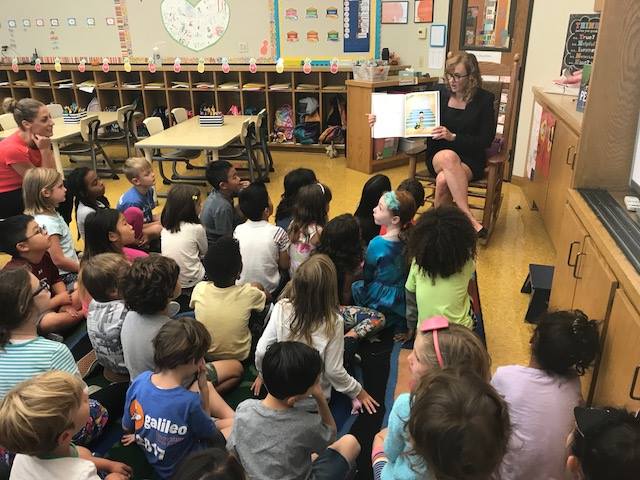 Last Wednesday I read We’re All Wonders to our first graders. The protagonist is a boy with only one eye, who yearns for others to see beyond his difference to experience him as a “wonder.” Together we defined words like “unique,” discussed how the narrator was feeling when he hears others whispering behind his back, and mused about the advantages of imagination and the intricacies of friendship.
Last Wednesday I read We’re All Wonders to our first graders. The protagonist is a boy with only one eye, who yearns for others to see beyond his difference to experience him as a “wonder.” Together we defined words like “unique,” discussed how the narrator was feeling when he hears others whispering behind his back, and mused about the advantages of imagination and the intricacies of friendship.
Later in the week, I engaged in a discussion of The Catcher in the Rye with some sharp eighth grade students, focusing on the teenage protagonist disconnected from family and friends as he struggles to leave childhood behind. With our oldest students, I could follow their lead. They made astute observations regarding the novel’s syntax representing Holden’s distance from his feelings and spoke perceptively about the very real perils and joys that accompany the transition to adulthood
According to writer Teju Cole, literature has “vaunted power to inspire empathy.” Novelist Marilynne Robinson has described fiction as “an exercise in the capacity for imaginative love, or sympathy, or identification,” which even our youngest students can experience from a simple picture book. Literature forces us to deal with complexity, which we often face in real-life situations where simple rules are inadequate and unhelpful. Interpreting literature helps our students to become “amiable skeptics,” by requiring them to develop a point of view supported by evidence and to reject arguments that lack persuasive proof. This process develops critical thinking skills our students need to approach challenges with order and rigor.
By analyzing literature, students also become better able to narrate their own stories and write their own histories. Last week, students in both first and eighth grade reveled in the opportunity to understand the books’ characters and their struggles, and to talk more broadly about big, messy questions: What is the value of adulthood? What do you leave behind in the transition to adulthood? Can you ever be innocent? How do you look past the surface to find the wonder in other human beings?
The proclivity to use literature as a means of creating and defining self-awareness lies at the heart of communities as well as individuals. On Wednesday evening, over 40 parents, administrators, and teachers came together for a Community Book Read discussion to explore the challenges of nurturing our children into successful adults, a profound commitment for all of us. We came away feeling nourished by each other’s stories and connected to shared values and empathy. Many participants let me know afterward that they appreciated the support to challenge some patterns and assumptions to find new opportunities for their child’s (and even their own) growth.
As an educator, I am always grateful to have the opportunity to participate in these discussions—with students, with parents, and with peers. In the process of sharing and exploring our own stories and those of others, we expand the beliefs and values that shape our families, our communities, and ultimately, our school.
Warmly,
Laura
Dr. Laura Konigsberg
Head of School


































